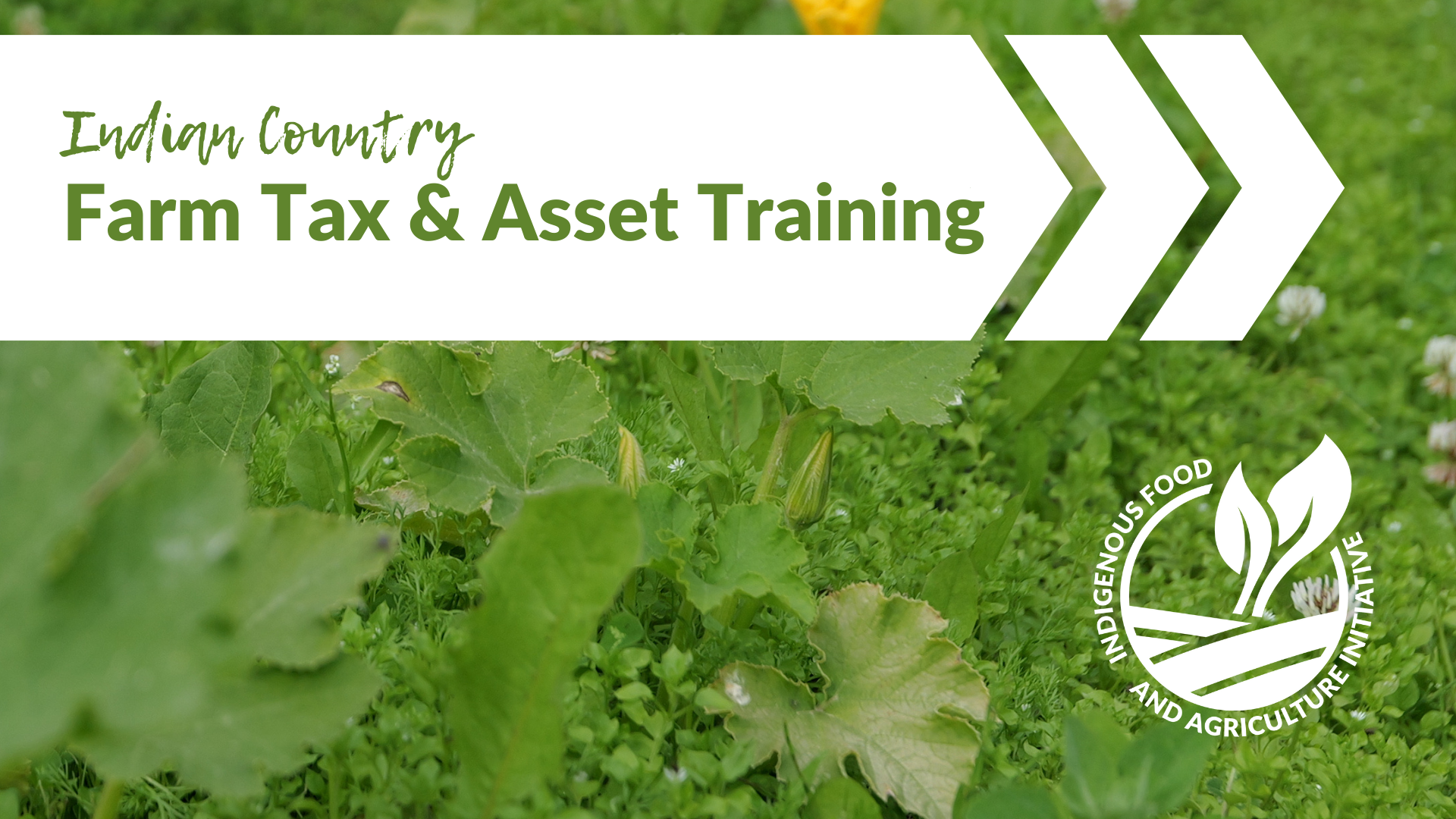Policy & Resources
Policy Briefings

IFAI Policy Brief April 22, 2025
Summary Congress is in recess through this week, but check out our blog from last week on the recent anniversary of Indian Self-Determination and Education Assistance Act (ISDEAA) and its impact in Tribal food and agriculture. The Food and Nutrition Service is...

IFAI Policy Brief April 15, 2025
Summary Congress is on recess for two weeks, but if you want to learn more about Executive Orders and Actions impacting Tribal food and agriculture, see IFAI’s webinar on our website here. The Food and Nutrition Service is requesting comments about the 2027 Farm to...

IFAI Policy Brief April 8, 2025
Summary Last week, the House Committee on Natural Resources held a field hearing in Oklahoma City to examine 50 years of the Indian Self-Determination and Education Assistance Act (ISDEAA). Seven Tribal leaders were in attendance, and their comments as well as other...
Educational Resources

CDFIs Address Credit Challenges in Indian Country
A recent subcommittee hearing of the United States Senate Committee on Banking, Housing, and Urban Affairs highlighted the work of Native-serving Community Development Financial Institutions (CDFIs). Senators heard testimony on the continued challenges these unique...

Strengthening Protein Supply Chains in Indian Country
First Nations Development Institute collaborated with the Indigenous Food and Agriculture Initiative (IFAI) at the University of Arkansas to create a resource publication to provide fundamental information on meat supply chains (including related policies,...
2018 – Optimizing Distribution Center Location and Delivery Schemes for the USDA’s Food Distribution Program on Indian Reservations (FDPIR)
In December 2018, the Indigenous Food and Agriculture Initiative published Optimizing Distribution Center Location and Delivery Schemes for the USDA’s Food DistributionProgram on Indian Reservations (FDPIR). Download the resource below.
Census Information
ANNUAL MARKET VALUE of ai/An Ag products*
Number of AI/AN Farms in 2022
Number of AI/AN PRODUCERS in 2022
Trainings/Webinars
The materials are based upon work supported by the U.S. Department of Agriculture, under agreement number FSA22CPT0012189.
Click the button below to access educational materials regarding tax and asset management.
EATS Academy
The Empowering Agriculture through Tribal Sovereignty (EATS) Academy is an ecosystem of trainings and resources developed by the Indigenous Food and Agriculture Initiative to support Tribal governments and producers develop robust food systems throughout Indian Country.
As needs for EATS Academy resources change and evolve for Tribal governments and producers, the academy will reflect updated information as it becomes available. Sign up to receive communications on updated resources and news related to the Indigenous food and agriculture.

Support for the EATS Academy has been generously provided by the Walmart Foundation.
This centralized resource ecosystem is intended to bridge gaps in information available to Tribal governments and producers. This is in no way complete, but it is a foundation for Tribal stakeholders to start their work in Tribal food sovereignty efforts.
Your feedback is important – we want to hear from you! What educational resources are missing? Send an email to tribalag@uark.edu.
Start below by sorting the information based on which category best fits your role, interests, goals, or areas of expertise.
Model Tribal Food and Ag Code
The Model Tribal Food and Agriculture Code Project serves as a resource for Tribal governments, providing a comprehensive set of model laws for review, adoption, and implementation. The model laws contained in the code were designed by IFAI and contributing attorneys to facilitate agricultural production, food systems development, and health outcomes improvement in Indian Country.
 Putting Tribal Sovereignty in Food Sovereignty
Putting Tribal Sovereignty in Food Sovereignty























